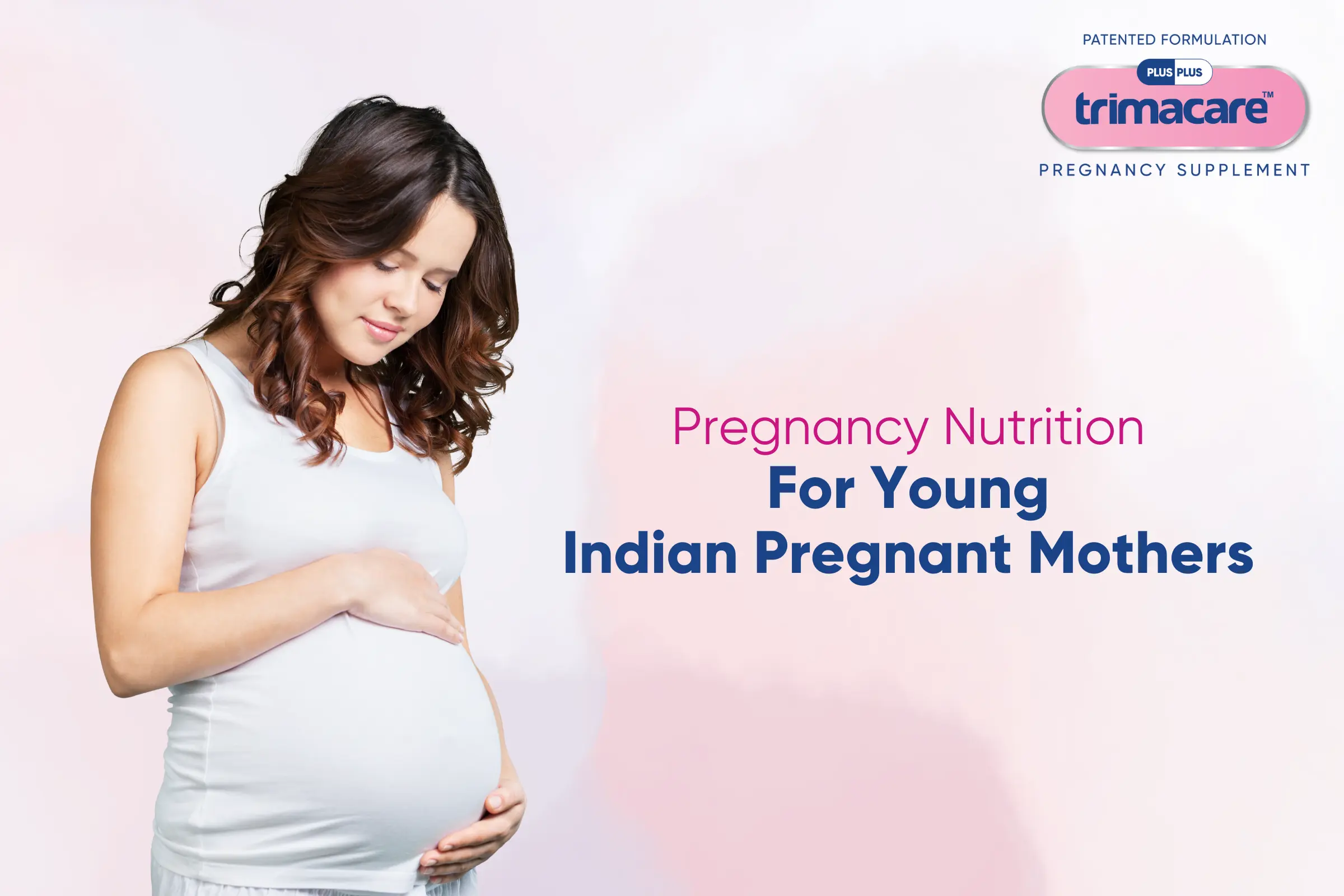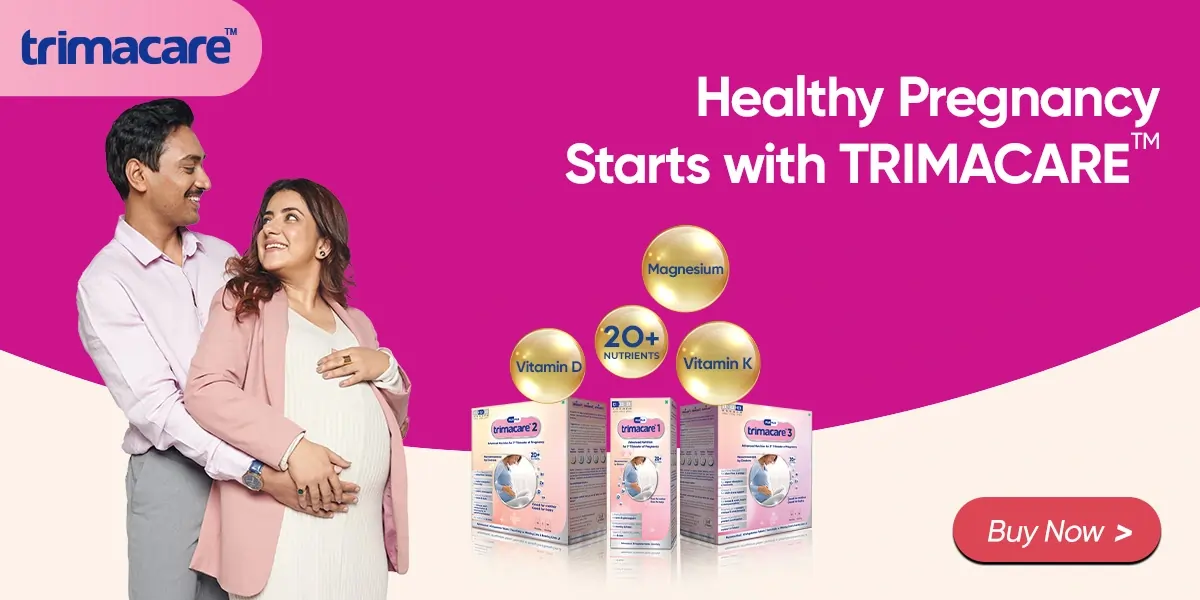Starting your motherhood journey as a young pregnant mother in India is a unique challenge, but it is also an opportunity to ensure a healthy start for both you and your child. Prenatal tablets can be quite helpful in bridging the nutritional gaps that frequently appear during this critical period. Good nutrition is the foundation of a successful pregnancy. In this article, we will discuss the importance of pregnancy nutrition for adolescent women in India, and how multivitamin tablets can supply the critical nutrients required for a successful pregnancy. Poor eating habits common in youth, such as dieting, skipping meals, snacking, and fast-food consumption, make many young pregnant mothers susceptible to nutritional deficiencies. Poor food and insufficient prenatal care are the main causes of anaemia. Preterm birth, LBW new-borns, preeclampsia, eclampsia, premature membrane rupture, gestational diabetes mellitus, pregnancy-induced hypertension, urinary infections, and haemorrhagic syndromes are all more common in young mothers.
COMPLICATIONS ASSOCIATED WITH YOUNG PREGNANCY
Young pregnancy in India can lead to a range of health issues for both the mother and the baby due to the unique social, cultural, and economic context of the country. Here are some common complications associated with young pregnancy in India:
Anaemia: Young pregnant mothers are more prone to develop anaemia due to the higher iron requirements during a specific stage of rapid growth where important biological changes are occurring. Anaemia during pregnancy can result in fatigue, weakness, and complications during childbirth. A lack of iron could arise from this, which could be harmful to the young mother and the baby physically and mentally.
Low Birth Weight: Babies born to young mothers are at a higher risk of low birth weight, which can lead to health problems and developmental issues in infancy and later in life.
Preterm Birth: Young pregnancies have a higher likelihood of resulting in preterm birth (delivering the baby before 37 weeks of gestation), which increases the risk of infant mortality and health complications.
Hypertension: Some young mothers may develop pregnancy-induced hypertension (pre-eclampsia or eclampsia), which can be life-threatening if not managed properly.
Pre-Eclampsia: Preeclampsia, a pregnancy illness characterised by escalating hypertension, is more common in young mothers. It can damage several organs and have adverse effects on both the mother and the foetus.
Gestational Diabetes: During pregnancy, gestational diabetes (GD) is discovered. Gestational Diabetes is a type of glucose intolerance that affects pregnant women. Gestational diabetes produces enhanced blood sugar levels, which can have an impact on your pregnancy and your baby’s health.
Repeat Pregnancies: Some young mothers may experience repeat pregnancies, which can further exacerbate health and social issues.
Inadequate Prenatal Care: Young mothers may delay seeking pregnancy vitamin supplements or not receive prenatal adequate care due to a lack of awareness or social stigma. This can lead to undetected health issues and complications.
Malnutrition: Malnutrition is a significant concern, both for young mothers and their babies. Poor nutrition during pregnancy can result in stunted growth and development for both the mother and the child. Thus, prenatal pills fil the nutritional gaps required during pregnancy.
ROLE OF PRENATAL MULTIVITAMINS IN PREVENTING COMPLICATIONS IN YOUNG INDIAN PREGNANCY
Multivitamins for women can play a crucial role in preventing complications in young Indian pregnancies, just as they do in pregnancies among young pregnancy mothers in other parts of the world. Young pregnancies come with unique challenges and risks, and adequate nutrition is essential to minimize these risks.
Here’s how prenatal vitamins can help prevent complications in young Indian pregnancies:
Folic Acid for Neural Tube Defects: Prenatal vitamins with folic acid contain folate, which is crucial for preventing neural tube defects like spina bifida and anencephaly.
Anaemia Prevention: Iron deficiency anaemia is a common concern in Indian pregnancies, and it can lead to fatigue, weakness, and other health issues. Prenatal vitamins with iron usually contain iron, which helps prevent anaemia and supports the increased blood volume in young pregnant mothers.
Calcium for Bone Health: Calcium is necessary for the development of the baby’s bones and teeth. India has a high prevalence of low bone density and osteoporosis, and ensuring an adequate calcium intake during pregnancy is essential for both the young pregnant mothers and the baby’s long-term bone health.
Vitamin D for Calcium Absorption: Vitamin D, often included in prenatal vitamins with calcium, is important for calcium absorption and bone health. In India, where there may be limited sun exposure, vitamin D supplementation becomes even more critical.
Nutrient Support for Maternal Health: Young pregnant mothers are still growing themselves, and pregnancy places additional demands on their bodies. Multivitamin tablet for women helps ensure that they receive essential nutrients to support their health, prevent deficiencies, and reduce the risk of complications such as preterm birth and low birth weight.
Preventing Low Birth Weight and Premature Birth: Inadequate nutrition during pregnancy can increase the risk of low birth weight and premature birth. Pregnancy multivitamins help provide the necessary nutrients for healthy foetal growth and development, reducing these risks.
Support for Young Mothers: Young mothers may face social and economic challenges that can impact their nutrition. Prenatal supplements during pregnancy can serve as an important safety net to ensure they receive the nutrients needed for a healthy pregnancy, especially if their access to a varied and nutritious diet is limited.
Reduction in Birth Defects: By providing essential nutrients, particularly during the critical first trimester, multivitamins for pregnant women can help reduce the risk of birth defects, which is essential in a country like India with a large population and varying healthcare accessibility.
TRIMACARE PRENATAL MULTIVITAMINS FOR PREGNANCY FOR BEST NUTRITION DURING PREGNANCY
Trimacare Prenatal Tablets include 20 or more micronutrients in a single tablet, allowing you to meet all your micronutrient needs with just one pill. Trimacare Prenatal Pills contain several crucial micronutrients, including iron, folate, calcium, vitamin A, omega-3 fatty acids, and vitamin B6. Trimacare Prenatal Tablet is designed to meet the unique needs of pregnant women by providing trimester-specific care while ensuring overall baby development. The Trimacare pregnancy vitamin supplement helps pregnant women get the nutrition they need while preventing morning sickness, digestive issues, and constipation. The folate in Trimacare prenatal vitamins throughout pregnancy promotes the development of the child’s spine and brain. Due to its 100% vegetarian composition, Trimacare prenatal vitamins with DHA are the ideal omega-3 and DHA supplement for vegetarian pregnant women.
Young pregnant mother in India should consume a diet rich in fruits, vegetables, lean proteins, and whole grains in addition to taking prenatal vitamins. Furthermore, access to prenatal care and advise from doctors is crucial for monitoring the young pregnant mother’s health and ensuring proper nutrition throughout the pregnancy.
Frequently Asked Questions:
1. What are prenatal vitamins?
Prenatal vitamins are supplements made to meet the nutritional requirements of pregnant women and their unborn children. They typically contain folic acid, iron, calcium, and other essential nutrients for the development of fetus.
2. Why are prenatal vitamins important during pregnancy?
Vitamins taken before pregnancy play a crucial role in ensuring the health of the mother and the unborn child. They support fetal growth and development, lessen the likelihood of certain birth defects, and improve the health of the mother as a whole by filling nutritional gaps in her diet.
3. When should I start taking prenatal vitamins?
Prenatal vitamins should be taken as soon as you find out you are pregnant, ideally before conception. This helps make sure that your body has all the nutrients it needs to grow the baby from the beginning of your pregnancy.
4. Are prenatal vitamins safe for all pregnant women?
Even though prenatal vitamins are generally safe for most pregnant women, you should always talk to your doctor before taking any new supplements, especially if you have any health conditions that are already present or are taking any other medications.
5. Can I take prenatal vitamins if I’m not pregnant or planning to conceive?
Prenatal vitamins may contain higher doses of certain nutrients, such as folic acid and iron, to meet the increased nutritional requirements of pregnant women. Even though it is generally safe to take them if you are not pregnant, unless your healthcare provider specifically advises otherwise, it is best to stick to regular multivitamins.
A Certified Nutritionist with a rich healthcare background in health journalism, the author has immense experience in curating reader-friendly, engaging, and informative healthcare blogs to empower readers to make informed pregnancy-related decisions.












